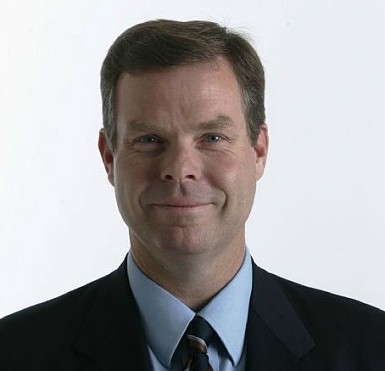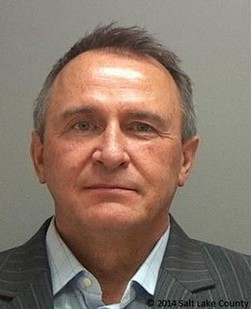
SALT LAKE CITY – After originally waiving his option for a preliminary hearing last year, former Utah Attorney General John Swallow wants a second chance at seeing evidence prosecutors have levied against him in an ongoing public corruption case.
Read more: Former Attorney General Swallow waives prelim, corruption case moves forward

In a motion filed in 3rd District Court Tuesday, Scott C. Williams, Swallow’s attorney, argued that Swallow’s waiving an option for a preliminary hearing was “not truly knowing and voluntary for a number of reasons.”
Swallow originally passed on the opportunity for a preliminary hearing in July 2015. He subsequently pleaded not guilty to multiple felony and misdemeanor charges related to accusations of corruption.
The motion argues that not holding a preliminary hearing left Swallow without a clear picture of the evidence prosecutors have against him.
The motion states:
…Failure to conduct a preliminary hearing has left Mr. Swallow in a position of a lack of knowledge and notice about the particulars of the State’s theory as to the charges against him, and the nature of the specific evidence in relation to those charges, that makes it impossible for him to adequately prepare to defend against the charges.
During a standard preliminary hearing, the prosecution presents the court with evidence and witnesses supporting its case in something akin to a mini-trial. Any evidence and witnesses used can also be scrutinized by the defense. Ultimately, it is left in the hands of the judge to determine if the state has established enough probable cause in the case to move it forward to trial.
When Swallow waived his right to a preliminary hearing, according to the motion, he did this based upon “a misleading presentation of the posture of the case, a poor understanding of the nature of the preliminary hearing process, and a state of investigation and discovery that was incomplete.”
The prosecution had lined up 33 potential witnesses to testify against Swallow as well, Williams wrote. Believing at the time the testimonies would only bolster the state’s case, Swallow factored that into waiving the hearing.
Now, according to the motion, Swallow believes the some of the potential witness testimony would actually undermine the state’s case instead.
Moving to a preliminary hearing would be in the court’s benefit, Williams wrote, as it would save time and delays that would likely occur. Without the hearing, Swallow and his defense will have to “sift through a veritable mountain of discovery materials.”
Those materials — or evidence — Williams wrote, are measured in terabytes with more on the way.
“A preliminary hearing would provide the opportunity to manage such a task to a least a major degree,” Williams wrote.
If convicted of the public corruption charges brought against him, Swallow would face up to 30 years in prison.
The case brought against Swallow is the culmination of a two-year long joint investigation between the Salt Lake County District Attorney’s Office and Davis County Attorney’s Office with the aid of the FBI and other agencies. It ultimately resulted in the arrest of Swallow and his predecessor, three-term Utah Attorney General Mark Shurtleff.
It is alleged that both men engaged in various acts of corruption while in office. Swallow and Shurtleff maintain they are innocent of the charges.

Shurtleff pleaded not guilty to various felony and misdemeanor corruption charges in court June 2015. He also faces the possibility of 30 years in prison if convicted.
The charges Swallow faces originally stem from allegations of corruption made against him by Jeremy Johnson in early 2013.
Johnson accused Swallow of using his connections to help orchestrate an alleged bribe of Sen. Harry Reid, D-Nevada, in order to eliminate actions against Johnson by the Federal Trade Commission, among other allegations.
Swallow resigned as Utah Attorney General in December 2013 amid the circling corruption accusations and their resultant investigations.
In the months following his resignation, the Utah House released the findings of its own investigation into Swallow’s conduct, which claims he “hung a veritable ‘for sale’ sign on the office door that invited moneyed interests to seek special treatment and favors.”
Email: [email protected]
Twitter: @MoriKessler
Copyright St. George News, SaintGeorgeUtah.com LLC, 2016, all rights reserved.
Huh, now how exactly does it happen that a former Attorney General has a poor understanding of the preliminary hearing process?
Exactly Roy J, I’m glad he isn’t the Attorney General. It seems he cannot stop making mistakes.
He committed so many crimes he couldn’t remember how to play legally.